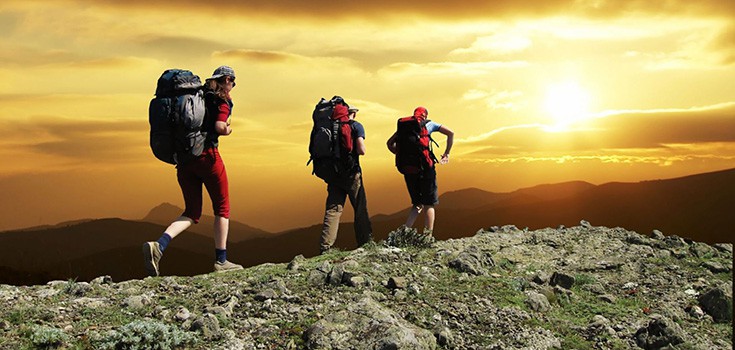Benefits of Traveling: Seeing New Things Creates Vital Neural Pathways, Builds the Brain

As if you needed another reason to take that trip that’s been on your bucket list for decades… Not many people recognize the true benefits of traveling. Gary Small, director of the UCLA Longevity Center at the Semel Institute for Neuroscience and Human Behavior, and author of several books on Alzheimer’s prevention, including ‘The Memory Bible’ and more recently, ‘The Alzheimer’s Prevention Program,’ was quoted in the June 2012 issue of Prevention magazine informing us that “research shows that travel helps build vital neural pathways.”
Prevention goes on to note that, “Navigating unfamiliar places, tasting new foods, or learning even just a few words of another language delivers the brain-building effect.” This is in keeping with the ‘use it or lose it’ that is increasingly accepted among neuroscientists in regards to keeping our brains healthy.
Benefits of Traveling for the Brain
Travel, of course, provides ample opportunity to use our brains as we expose ourselves and respond to new and interesting stimuli. But if you really want to reap the most benefits of traveling, take the rest of Small’s advice:
- Take a walk, or better yet a forest bathing nature hike in that new place. Small emphasizes over and over again that physical exercise is the most proven way to lessen one’s risk of cognitive decline. His research has found walking for as little as 15 minutes a day can lower one’s risk. Data also suggests benefits from weight and strength training.
- Treat yourself to a meal rich in omega-3s (think fish and/or olive oil), fruits and vegetables, nuts and whole grains. Avoid processed foods.
- Manage stress. Research has shown that an injection of cortisol, a stress hormone, can temporarily impair learning and recall. Stress may also increase chance of death by any given cause by 50%. Before stressing out, try these 3 natural ways to reduce stress.
- Exercise your brain. Of course, this is the goal of taking that exotic trip, but if it’s not realistic for you to hit the road, armed with an adventurous spirit and maybe a map, do what you can to challenge your brain wherever you are. Eat something, do something, learn something new. Use it or lose it.
Small’s guidelines may seem too simple to make a difference, but skeptics take note: In a study of 115 older adults from two retirement communities, a six-week ‘lifestyle training program’ emphasizing memory training, physical activity, stress reduction, and healthy diet led to significant improvement in both encoding and recalling new verbal information, as well as self-perception of memory.
The bottom line, Smith has said, is that if everybody in the nation started taking walks and making the right lifestyle choices, there would be one million fewer cases of Alzheimer’s within five years.
Wow. Now that’s advice worth remembering.
Additional Sources:

Yes this info is totaly correct. I have been to 100 countries and what a feeling of strength knowledge and understanding with most of life's questions answered. It's about the journey of good and bad and rolling along filling in the Blanks. Get activated and let yourself talk to you. Dave